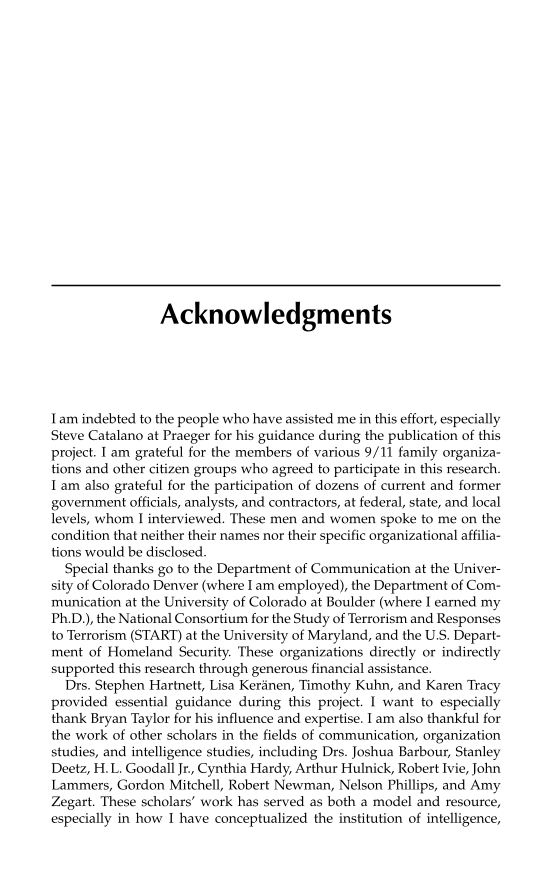Acknowledgments I am indebted to the people who have assisted me in this effort, especially Steve Catalano at Praeger for his guidance during the publication of this project. I am grateful for the members of various 9/11 family organiza- tions and other citizen groups who agreed to participate in this research. I am also grateful for the participation of dozens of current and former government officials, analysts, and contractors, at federal, state, and local levels, whom I interviewed. These men and women spoke to me on the condition that neither their names nor their specific organizational affilia- tions would be disclosed. Special thanks go to the Department of Communication at the Univer- sity of Colorado Denver (where I am employed), the Department of Com- munication at the University of Colorado at Boulder (where I earned my Ph.D.), the National Consortium for the Study of Terrorism and Responses to Terrorism (START) at the University of Maryland, and the U.S. Depart- ment of Homeland Security. These organizations directly or indirectly supported this research through generous financial assistance. Drs. Stephen Hartnett, Lisa Keränen, Timothy Kuhn, and Karen Tracy provided essential guidance during this project. I want to especially thank Bryan Taylor for his influence and expertise. I am also thankful for the work of other scholars in the fields of communication, organization studies, and intelligence studies, including Drs. Joshua Barbour, Stanley Deetz, H. L. Goodall Jr., Cynthia Hardy, Arthur Hulnick, Robert Ivie, John Lammers, Gordon Mitchell, Robert Newman, Nelson Phillips, and Amy Zegart. These scholars’ work has served as both a model and resource, especially in how I have conceptualized the institution of intelligence,
Document Details My Account Print multiple pages
Print
You have printed 0 times in the last 24 hours.
Your print count will reset on at .
You may print 0 more time(s) before then.
You may print a maximum of 0 pages at a time.
















































































































































































































































